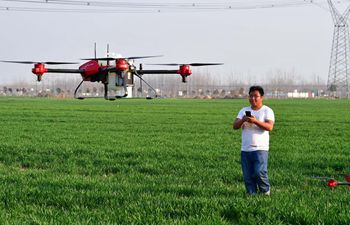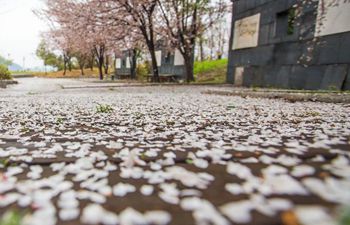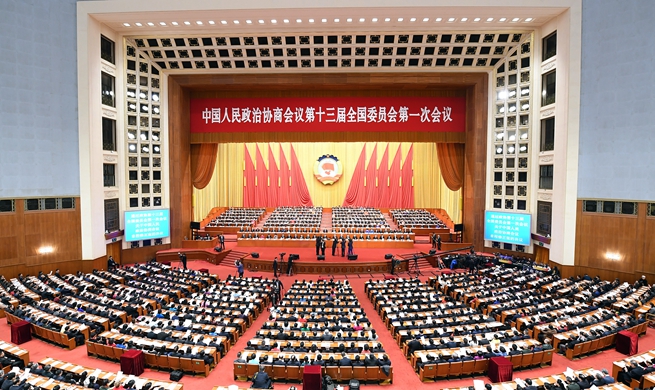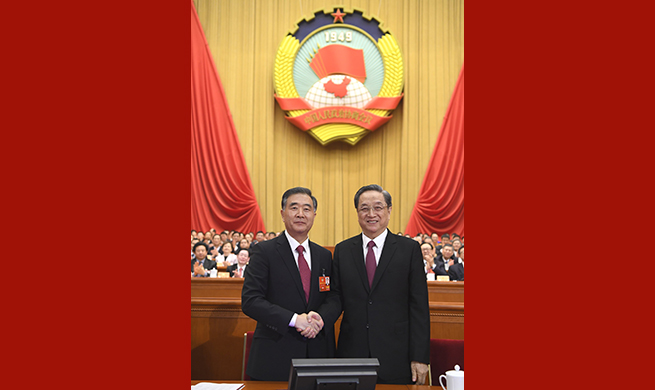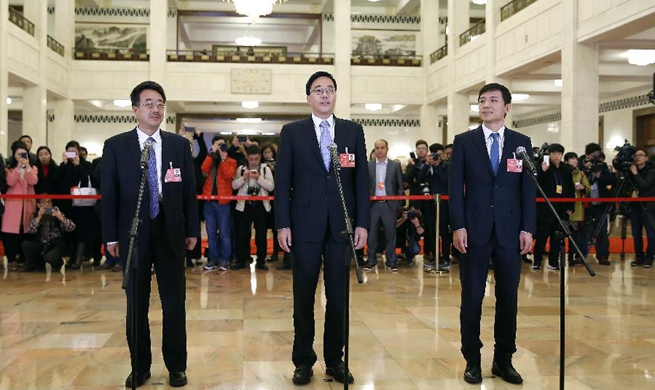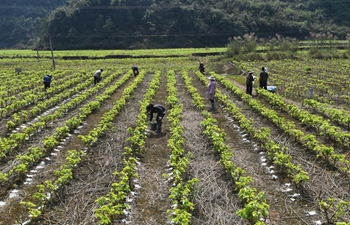ISTANBUL, March 15 (Xinhua) -- As the Turkish army lays siege to Kurdish militia-held Afrin in Syria, analysts do not expect the Kurdish militants to surrender but probably hand over the city to the Syrian government when they feel they can resist no longer.
"It looks as if the YPG will fight," Cahit Armagan Dilek, head of the Ankara-based 21st Century Turkey Institute, told Xinhua.
The YPG, or People's Protection Units, has been under a fierce assault by Turkish troops and allied Syrian rebels since Jan. 20, as Ankara is determined to clear its border of a terror group which its says is the Syrian branch of the Kurdistan Workers' Party outlawed for its continued armed struggle against the Turkish state.
As the central town in the Afrin district, Afrin has been largely surrounded by Turkish troops since the beginning of this week, and Turkish President Recep Tayyip Erdogan said Wednesday evening that the troops were about to enter Afrin.
"There are no indications that the YPG will withdraw from Afrin without fighting," Sinan Ulgen, a former diplomat, told Xinhua.
Since Turkey launched Operation Olive Branch against Afrin, there have been reports about the YPG conducting negotiations with Damascus over handing over Afrin. According to some reports, the talks failed as Damascus wanted the militia to leave behind its weapons.
The Kurdish fighters are getting reinforcements from other parts of Syria, said Ulgen who chairs the Istanbul-based Center for Economics and Foreign Policy Studies, as they have established three cantons along both sides of the Euphrates River during the Syrian civil war.
About 6,000 to 8,000 YPG militants are estimated to be in Afrin city, which has a population of some 700,000, according to the Syrian Observatory for Human Rights, a Britain-based organization that reports on the Syrian war.
The YPG may be hoping to make its fighting in the besieged city another success story just as it did in Syria's Kobane against the Islamic State back in early 2015, observed Dilek, a former staff officer in the Turkish military.
According to reports in Turkish media, the Kurdish militants have built underground tunnels all over the Afrin city after they seized the district and set up a canton there.
Dilek feels that the United States may be encouraging, with a view to spoiling an alleged deal between Turkey and Russia, the Kurdish militia to fight while planning to increase international pressure on Turkey as the siege continues.
It is widely argued that Ankara launched the offensive against the YPG following a deal with Moscow.
Since the summer of 2016, Turkey has been cooperating with Russia in Syria rather than with the U.S., its NATO ally, as Washington's continued arming of the YPG angered Ankara and alienated bilateral ties.
The U.S., which sees the YPG as an ally in the battle against the Islamic State, has expressed its dissatisfaction with Turkey's Afrin operation.
French Foreign Minister Jean-Yves Le Drian said on Tuesday that the Turkish army's entry deep into the Afrin area was illegitimate, describing the situation as grave and critical.
In the view of Ulgen, the YPG could accept Damascus' conditions to hand over the city if it feels unable to cope with the Turkish offensive.
Arguing such a formula would also be politically acceptable for Turkey, he said -"the Turkish army would not have to fight an urban warfare."
Dilek, however, does not expect Damascus to take over the city from the Kurdish militia, as he thinks Afrin is reserved for Turkey in the alleged deal between Moscow and Ankara.
Until the beginning of this week, the Turkish army had the Afrin area surrounded from only three sides, letting a corridor in the southeast of the Kurdish enclave have link with an area under Syrian government control.
President Erdogan's remarks on Wednesday suggested that Turkish troops were intending to block that passage as well, a move which would prevent the YPG from handing over the city.
The president also said he hoped the city would completely fall by Wednesday evening.
Then, in an effort to clarify Erdogan's words, an unidentified presidential source reportedly told the media that the president was expecting Afrin to be completely besieged.
The Turkish offensive has gained momentum particularly since the beginning of March when the YPG lost several critical positions it had stubbornly defended since the beginning of the offensive.
Turkish media reports revealed, however, that the YPG withdrew, either due to panic or as part of a strategy, without much resistance at some places.
Units of special forces from the Turkish military, police and gendarmerie, which are well-trained in urban warfare, were sent to the Afrin district in recent weeks.
Turkish press reports said that the YPG is trying to stop civilians from leaving Afrin.




